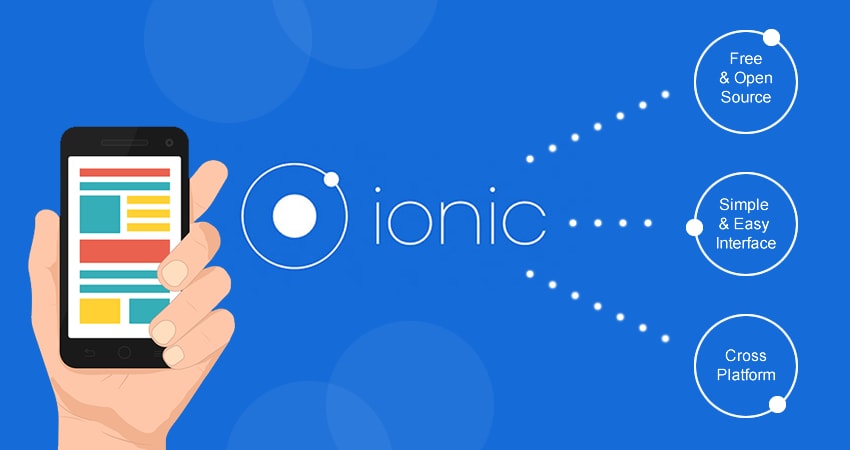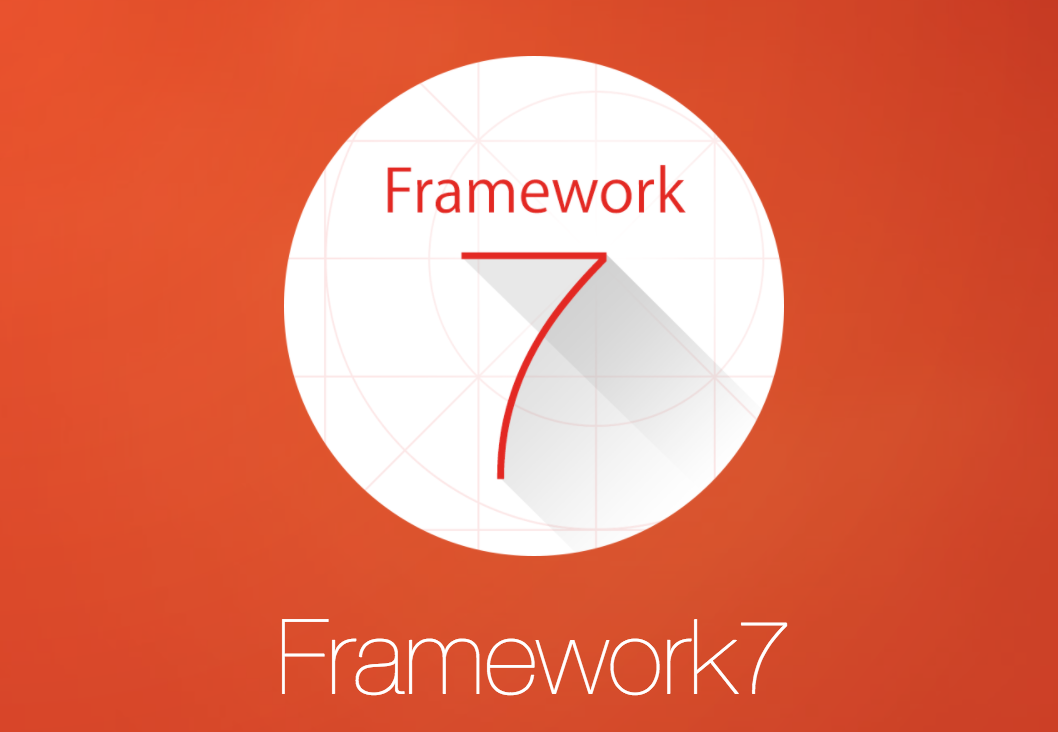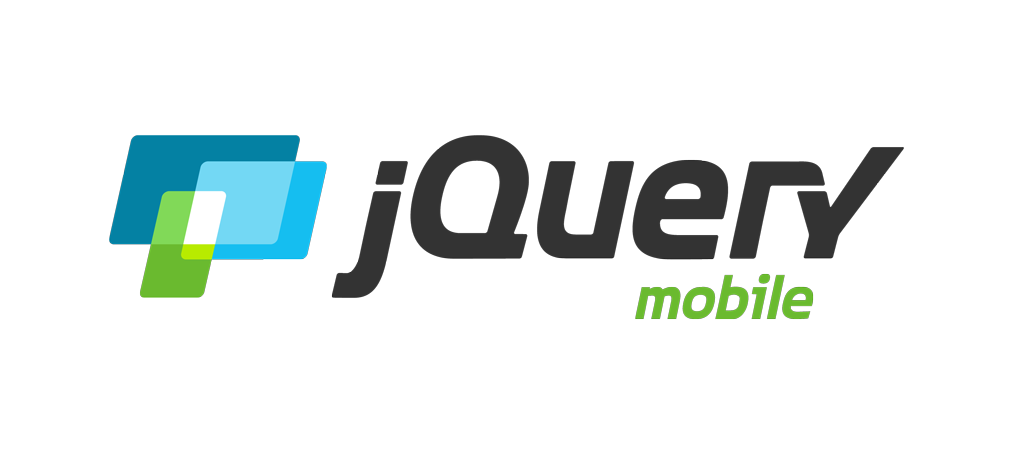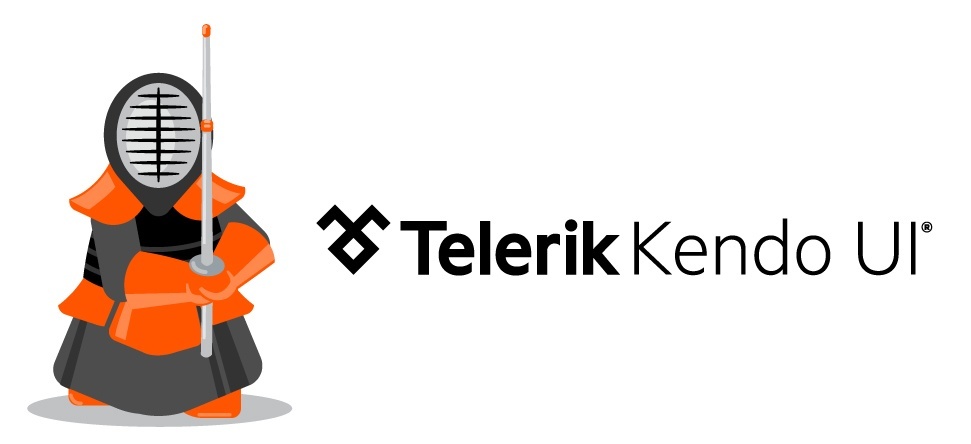Top 5 Hybrid Mobile App Frameworks
While a few developers like to work natively to develop applications for particular mobile platforms, this can demonstrate tedious, require a good knowledge of various programming languages, and not generally fit the business case being referred to.
That is the reason numerous developers and their enterprise customers progressively swing to hybrid mobile application improvement frameworks, permitting anybody comfortable with HTML, CSS, or JavaScript to make applications that work flawlessly over all the mobile platforms.

Hybrid Mobile App Frameworks Promise Development Efficiency
With the hybrid approach, an application is designed as a regular responsive web application that fits diverse screen sizes, utilizing the segments that accompany the mobile HTML5 UI frameworks.
JavaScript APIs at that point enable access to native hardware elements, for example, a camera, accelerometer and more. At last, the application is gathered into platform specific native packages that can be deployed or discharged on application stores. The outcome is an increase in end-to-end productivity along the development pipeline.
The question is – which hybrid mobile application framework to use for your mobile application development projects? The following is our top 5 list.
1) Ionic

The pioneer in the independent development field is apparently Ionic. Ionic's development group keeps the framework routinely updated, so it for the most part figures out how to stay in front of the competition. Also, Ionic is free, while its nearest rivals are expensive. Furthermore, Ionic is open-source and boasts an enormous situation of assets from the development group.
Different features incorporate out-of-the-box support for material design, the wrapping Angular framework, and Cordova use that is native to iOS, Android, Windows Mobile, and different platforms.
Also, the Ionic framework is maintainable, scalable, perfect, simple to read, and accompanies a monstrous mobile-optimized library of CSS (powered by SASS, HTML, and JavaScript components). A rich set of features and tools implies creating mobile applications has never been simpler. That is most likely why Ionic is such a popular framework among developers of both customer and enterprise grade applications. In fact, as indicated by a current Ionic review, over 40% of applications worked with the framework are for inner enterprise utilize.
Read also: 5 Crucial Steps to Follow When Inheriting an Existing Wordpress Site
2) Onsen UI
.png)
Onsen UI is a generally new mobile UI arrangement, which was once reliant on Angular, yet has since been freed as a completely autonomous system by its maker, Monaca. In spite of the fact that it right now does not have the presentation delighted in by Ionic, this is probably going to change as more developers find Onsen UI's flexibility. For sure, this is a framework that has been intended to play pleasantly with various different cross-platform instruments including Angular, React, and Vue.js.
Notwithstanding its adaptability, Onsen UI is likewise extremely simple to utilize, and permits development of mobile applications with a really native look. It's likewise open source and like Ionic, totally allowed to utilize, settling on it a decent decision for organizations that have just incidental application advancement needs.
Encourage straightforwardness is given by a wide variety of ready-to-utilize parts, which can likewise be tweaked as required. The expectation to learn and adapt for Onsen UI is shallow, and if adaptability is critical to your business, you'll be satisfied to know the platform can be utilized to make web applications, and also native style mobile applications.
The main normally revealed disadvantage with Onsen UI is the basic documentation, which a few clients report similar to somewhat misty. That is not really a work of art however, and as more developers end up mindful of Onsen UI, adaption is certain to build, maybe to the point where this structure turns into a genuine competitor to Ionic.
3) Framework 7

Framework 7 is the go-to hybrid mobile application system if you need your development procedure to be quick and deft. That is on account of not at all like most hybrid framework, Framework 7 (F7) has no reliance on outer tools, for example, React or Angular. In spite of the fact that, since it has no application packaging or emulation tools, you should utilize F7 with Cordova or PhoneGap.
This stripped-down approach absolutely doesn't take away from application quality. Many UI elements and widgets, including activity sheets, pop-ups, modals, list views, media lists, side panels, tabs, and form elements enable feature-rich hybrid applications to look and feel native. You'll likewise observe F7 to be a particularly helpful framework if you hope to make applications which utilize a ton of animation.
Framework 7 is effortlessness itself being used, and any developer comfortable with web-coding technologies (HTML, JavaScript, and CSS) will feel comfortable. That is only the sort of preferred standpoint you have to help efficiency and help lessen the development cycle duration.
The best part is that if you think the possibility of any system being this direct and easy to understand is unrealistic, there's little to lose by try Framework 7 attempt. Like different tools canvassed so far in this article, F7 is open-source and absolutely free of permitting or different expenses.
4) jQuery Mobile

While numerous hybrid framework try to convey applications that look and act "native," jQuery Mobile adopts an alternate strategy. The focus of this tools is to make generic applications that perform reliably over all platforms, including Windows, Symbian, and Blackberry, with one of a kind, if not native UIs for each.
jQuery Mobile is a perfect framework for bigger organizations that help BYOD, given the imaginable need to provide food for an extensive variety of device types and operatong system. All things considered, the bigger the association, the more outlandish it is that all workers will be iOS or Android fans—and clients of less well known formats have a tendency to be all the more enthusiastic about staying with what they know.
Having been around longer than most different frameworks, jQuery has had a lot of time to develop and experience refinement, so regardless of focusing on platform assorted variety, this is the very tool to depend on when you need applications that are responsive and reasonable to grow, yet have little requirement for the presence of native authenticity – mobile enterprise maybe being a decent example.
Read also: How Mobile Wallet App Simplifies mCommerce
5) Kendo UI
 Kendo UI facilitates development of web or hybrid mobile applications utilizing JavaScript, HTML5, and CSS. This enterprise application frameworks enables designers to get to in excess of 70 jQuery widgets, can be integrated with Angular, and features support for Bootstrap.
Kendo UI facilitates development of web or hybrid mobile applications utilizing JavaScript, HTML5, and CSS. This enterprise application frameworks enables designers to get to in excess of 70 jQuery widgets, can be integrated with Angular, and features support for Bootstrap.
Different advantages of Kendo incorporate a great arrangement of design theme and even a custom theme builder—a feature which truly separates this framework from its competitors.
Supported and mauntained by Telerik, Kendo is the subject of a broad open-source development group. For enterprise, a scope of commercial licensing alternatives exists. At last, in case you're in any uncertainty with regards to the enterprise-grade credentials of Kendo, you can rest guaranteed that it has a lot of commercial endorsement. Major organizations utilizing Kendo for application development include NASA, Volvo, Sony, Microsoft, and Toshiba.
Making the Decision
Picking a hybrid mobile application framework for creating cross-platform mobile applications relies upon three things – your identity, what you need from an development platform, and what you need your application to be at last.
In case you're an independent developer or a small organization, you should need to run with Ionic, Framework 7, or Onsen UI. Picking between these relies upon whether you need to create inside a bigger, more settled condition and feel good with many-sided quality (in which case you may favor Ionic), or are more intrigued by nimbleness or potentially convenience (which would make F7 or Onsen perfect systems to try).
In case you're a relatively huge enterprise, at that point you should need to attempt Kendo UI or jQuery Mobile. Kendo is a more expensive alternative than different frameworks recorded here, however accompanies a huge set of templates, theme and tools. In the interim, jQuery lends itself well to development of applications for employee, or to different circumstances where development cost and application come before the need to be "native."


